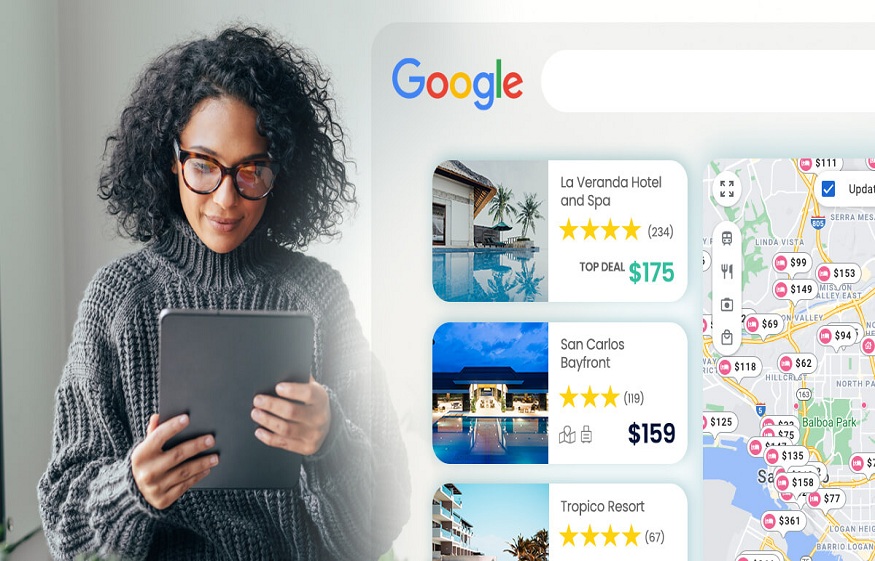How To Use Google Ads For Your Hotel

Google Ads is a powerful tool for hotels looking to reach potential customers online. With over 3.5 billion searches conducted on Google every day, hotels must make use of this platform to drive traffic to their websites and increase bookings. In this article, we’ll go through the basics of hotel ads Google ads, and how you can use them to promote your hotel.
Getting Started with Google Ads
Before you start using Google Ads, make sure you know your target audience and what you hope to achieve. It will help you create effective campaigns suited to your specific needs and goals. Some common objectives for hotels include increasing website traffic, boosting bookings, and raising brand awareness.
Once you’ve determined your goals, you can set up your Google Ads account and start creating your first campaign. Google Ads works on a pay-per-click (PPC) model, which means you’ll pay each time someone clicks on one of your ads. The cost per click can vary widely depending on the competition for the keywords you’re targeting, so it’s significant to do your research and choose keywords wisely.
Targeting Your Audience
One of the key advantages of using Google Ads is the ability to target specific audiences based on factors like location, age, and interests. For hotels, location targeting is most significant, as you’ll want to reach potential customers in the areas where your hotel is located.
In addition to location targeting, you can also use demographic targeting to reach people based on factors like age, gender, and interests. It can be especially suitable for hotels looking to target families, business travelers, or couples on romantic getaways.
Using Keywords to Reach Your Audience
Keywords play a crucial role in determining which people see your ads, so it’s significant to choose them wisely. You’ll want to select keywords that are relevant to your hotel and target audience, as well as keywords that are likely to be used by people searching for hotels in your area.
Some common keywords for hotels include “hotel in [location],” “hotel deals,” and “hotel reservations.” You can also use keyword research tools like Google Keyword Planner to find additional keywords that are relevant to your hotel and target audience.
Creating Effective Ads
Once you’ve set up your account and chosen your keywords, it’s time to create your ads. Google Ads offers a variety of ad formats, including text ads, display ads, and video ads, so you’ll have plenty of options to choose from.
When creating your ads, it’s important to make them visually appealing and easy to understand. Use high-quality images, and clear and concise language, and include a strong call to action to encourage people to take action. You’ll also want to make sure your ads are relevant to the keywords you’re targeting, as this will increase the likelihood that they’ll appear to the right audience.
Tracking Your Results
One of the great things about Google Ads spy is that it provides detailed tracking and reporting, so you can see exactly how your campaigns run. You’ll be able to track metrics like impressions, clicks, and conversions and use this information to make informed decisions about how to optimize your campaigns for better results.
Some standard metrics to track include:
- Impressions: The number of times your ad has appeared to potential customers.
- Clicks: The number of times someone has clicked on one of your ads.
- Conversion rate: The number of clicks that have resulted in a booking or other desired action.
Maximizing Your Budget
One of the challenges of using Google Ads is finding the right balance between maximizing your budget and achieving your goals. There’s no one-size-fits-all answer to this, as the optimal budget will depend on your specific circumstances and objectives. However, some general tips can help you get the most out of your budget:
- Start with a small budget: When you’re first starting, it’s a good idea to start with a smaller budget and gradually increase it as you learn what works and what doesn’t.
- Use bidding strategies: Google Ads offers several bidding strategies, including manual bidding and automatic bidding, that can help you maximize your budget. For example, reflex bidding can help you reach your goals at the lowest possible cost, while manual bidding gives you more control over your budget and command strategy.
- Monitor your performance: Regularly monitoring your campaigns and making adjustments based on your execution can help you get the most out of your budget. For example, if you find that certain keywords are performing poorly, you may want to adjust your bids or try different keywords.
Conclusion
Google Ads can be a powerful tool for hotels looking to reach potential customers online. By using location targeting, effective keywords, and visually appealing ads, you can drive traffic to your website and increase bookings. With the right strategy and regular monitoring, you can get the most out of your budget and achieve your goals.






